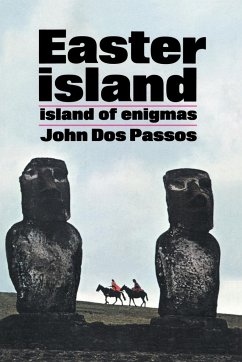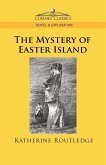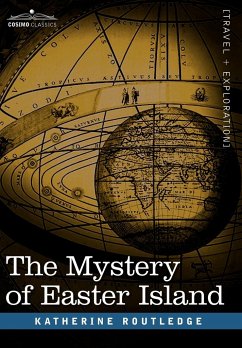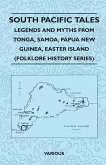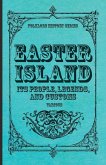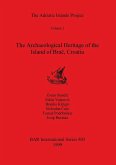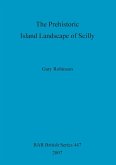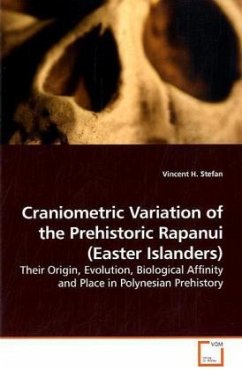Despite sickness in the final years of his life, Dos Passos presses on for adventure. He and his wife journey to Easter Island, where they explore the history behind the famous statues-called maois. "When I was a small boy," Dos Passos says, "some kind person took me to the British Museum. There I saw a statue, a huge, rough, dark-gray statue with [a] long, sad, dark-gray face. The statue stared back out of deep, sunken eyes. What was it trying to say? To this day I can remember the feeling it gave me of savage, brooding melancholy."

